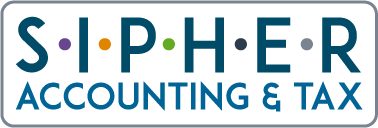Reference: ACCA Global
Tax deductible expenses to include on a landlord’s tax return
Factors to consider when calculating rental expenses.
Generally, when calculating rental business profits, expenses will be treated as revenue expenditure provided they are incurred wholly and exclusively for the purposes of the business and are not of a capital nature.
We analyse below the tax deductibility of some of the commonly incurred expenses in a rental business:
- wear and tear allowance/replacement of domestic items
- wholly and exclusively – cost of travel to visit the property
- professional fees
- redecoration costs
- finance cost.
Wear and tear allowance/replacement of domestic items
Historically landlords who let furnished properties were able to claim a wear and tear allowance. This allowance was scrapped in April 2016. Landlords are now only able to claim tax relief when they purchase furniture for their rental property.
Replacement of domestic items relief is only available for expenses incurred from 6 April 2016 for income tax purposes. The new scheme permits landlords to deduct the actual costs of replacing like-for-like, or nearest modern equivalent:
- furniture
- furnishings
- kitchenware.
One of the benefits of the new rules will be that calculating and determining expenses is easier for landlords. They will not have to work out whether their property is furnished enough or whether something is a fixture in order to claim the 10% relief. Landlords with a portfolio including furnished, unfurnished and part-furnished property will also be able to deduct expenses.
However, the initial cost of purchasing domestic items for a dwelling house isn’t a deductible expense so no relief is available for these costs. Relief is only available for the replacement item.
Wholly and exclusively – cost of travel to visit the property
From 6 April 2017 if you carry on an unincorporated property business as an individual or in a partnership which is made up of only individuals, you can calculate your car, van or motorcycle expenses using a flat rate for the mileage travelled in connection with your rental properties. You can choose to use this method instead of deducting actual running costs and claiming capital allowances.
Approved mileage rates for tax year 2017 to 2018:
| Vehicle type | Flat rate for the first 10,000 business miles in the tax year | Flat rate for each business mile over 10,000 miles in the tax year |
| Cars and goods vehicles | 45p per mile | 25p per mile |
| Motorcycles | 24p per mile | 24p per mile |
The number of people in the vehicle doesn’t affect the rate.
Professional fees
Solicitors’ fees incurred to evict tenants or to recover rental income are treated as incurred wholly and exclusively for the purpose of the rental business and as a result are allowable. Management fees/agents’ fees will be fully tax deductible. If the landlord chooses to advertise his property privately, this cost is also allowable.
The cost for preparing rental accounts is an allowable expense; however, the cost of completing the landlord’s tax return is not allowed as it is a private expense.
Redecoration costs
Ordinarily, the cost of redecorating would be an allowable revenue expense. However, if the work is undertaken as part of an improvement, the entire cost is treated as being capital, including the redecoration.
Finance cost
Finance interest payable on loans (including incidental cost of financing) used to buy land or property which is used in the rental business, or on loans to fund repairs, improvements or alterations, is deductible in computing the profits or losses of the rental business regardless of the security given for borrowed funds. The interest has to meet the ‘wholly and exclusively’ test. However:
Changes to interest and other finance charges – 6 April 2017
From 6 April 2017, tax relief on interest paid by landlords of residential properties will be restricted gradually (by 1/4 for each tax year) so that from 6 April 2020, interest will not be an allowable expense in computing the profits of the business, but will attract tax relief at 20%. Landlords will be able to obtain relief as follows:
]Finance cost allowed in full Finance cost allowed at basic rate
Year to 5 April 2017 100% 0%
Year to 5 April 2018 75% 25%
Year to 5 April 2019 50% 50%
Year to 5 April 2020 25% 75%
Year to 5 April 2021 0% 100%
ACCA has an example of how the changes will affect a basic and a higher rate taxpayer which can be found here.

